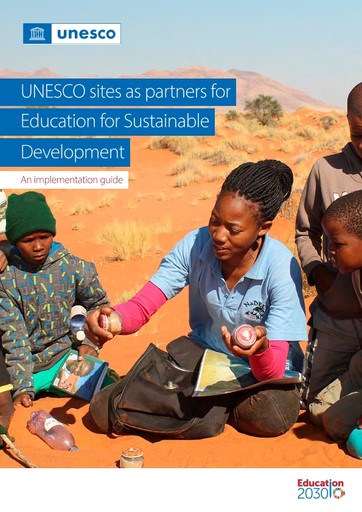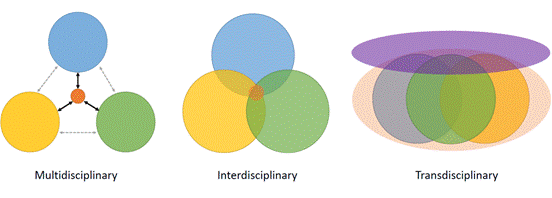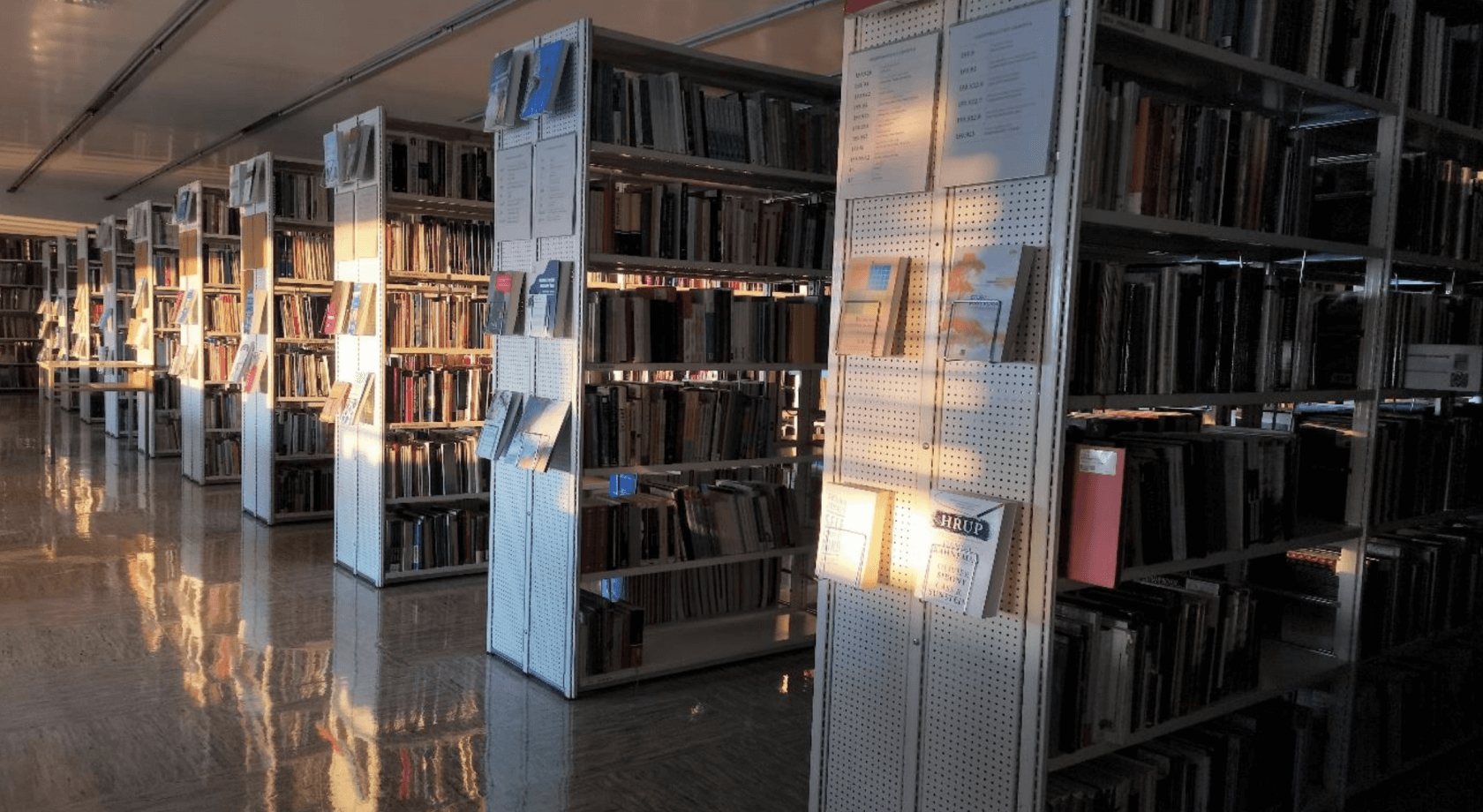UNESCO
Chair on Teacher Education for Sustainable Development
Chairholder: prof. dr. Gregor Torkar

Chairholder: prof. dr. Gregor Torkar
Presentation of the UNESCO Chair on Teacher Education for Sustainable Development
The purpose of the Chair is to promote an integrated system of research, teaching and training, as well as community engagement and communication. The Chair will facilitate collaboration between high-level, internationally recognized researchers and teaching staff of the University of Ljubljana and other institutions in the country, as well as elsewhere in the region and in other regions of the world.
The specific objectives of this Chair are to:
Chairholder: Prof. Gregor Torkar, PhD, University of Ljubljana, Faculty of Education, Kardeljeva ploščad 16, 1000 Ljubljana, Slovenia, E: gregor.torkar@pef.uni-lj.si
Global Orientation Meeting for the project Transforming Futures: Enhancing Practice for ESD for 2030 through Action Research
On 3-4. March 2025 a kick-of Global Orientation Meeting for researchers and ASPnet representatives from 11 coutries was held in UNESCO HQ Paris. Slovenia was represented by dr. Gregor Torkar (UL) and Sara Remžar (ASPnet).
More on the following link
Meeting of the Slovenian UNESCO Chairs in Koper
The Slovenian UNESCO Chairs met for the first time at the Faculty of Humanities of the University of Primorska on Friday, 7 February 2025. The Faculty, which has been the holder of the UNESCO Chair in Interpretation and Education for Enhancing Integrated Heritage Approaches for the fourth year in a row, hosted representatives of the UNESCO Chair on Karst Education at the University of Nova Gorica and the ZRC SAZU, the UNESCO Chair on Water-related Disaster Risk Reduction at the University of Ljubljana, the Chair on Open Technologies for for Open Educational Resources and Open Learning and the UNESCO Chair on Teacher Education for Sustainable Development from the University of Ljubljana, and a representative of the UNESCO Venice Office for Science also joined the meeting.
More on the following link
UNESCO schools meeting
On November 8 and 9, 2024, a professional meeting of ASPnet in Slovenia was held in Slovenj Gradec and Kope. On our behalf, as. Žan Rode participated in the rich program of lectures and workshops, presenting the 15-minute city workshop to teachers, which is part of the curriculum of the course Education for Sustainable Development and Green Transition at the Faculty of Education in Ljubljana. The concept of a ±15-minute city offers a holistic approach to urban planning, which includes numerous aspects, such as transport, energy, ecology, economy and society, which are thematic areas that can be included in the curriculum. At the workshop, teachers learned about the history of urban planning and the so-called neighborhood flowers and transferred this concept to the school environment.
Announcement of the Ceremony for the Establishment of the UNESCO Chair on Teacher Education for Sustainable Development at the University of Ljubljana
We are pleased to announce the ceremony for the establishment of the UNESCO Chair on Teacher Education for Sustainable Development at the University of Ljubljana, which will take place on Wednesday, September 25, 2024, at 9:00 AM in the Assembly Hall of the Rectorate of the University of Ljubljana (Kongresni trg 12, 1000 Ljubljana).
The ceremony will begin with welcome addresses. This will be followed by a keynote lecture by Prof. Dr. Daniel Fischer, Head of the UNESCO Chair on Higher Education for Sustainable Development at Leuphana University in Germany. A roundtable discussion on quality teacher education for sustainable development will follow. The ceremony will be accompanied by a musical program and will conclude at 11:00 AM.
We would be delighted if you could join us for the ceremony.
Please confirm your attendance by Wednesday, September 18, 2024, by sending an email to the Chair’s head.
The handbook “UNESCO Sites as Partners for Education for Sustainable Development: An Implementation Guide” has been published

The aim of this handbook is to offer practical suggestions and ideas for teachers, educators and site managers on how to mobilize and collaborate with UNESCO sites, including biosphere reserves, World Heritage Sites and Geoparks, to develop practical learning activities.UNESCO sites cover 6% of the earts’s land area. Slovenia also has UNESCO sites: Škocjan Caves Park, Karavanke Geopark, Idrija Geopark, Karst Geopark, etc. The general approach is to promote sustainable climate and environmental actions based on ongoing projects in UNESCO sites around the world, and to enable students to experience the reality of sustainable development in their local contexts through these sites.
The handbook was also reviewed by Dr. Gregor Torkar (University of Ljubljana, Faculty of Education and UNESCO Chair on Teacher Education for Sustainable Development.
https://unesdoc.unesco.org/ark:/48223/pf0000393024
Developing 21st Century Skills: generations for quality innovation, resilience, leadership and sustainability
In the fast-paced environment of the 21st century, developing a comprehensive set of skills is crucial for individuals’ success in their personal and professional lives. A world characterised by technological advances and global connectivity requires traditional academic education to be enhanced with skills such as critical thinking, creativity, communication, collaboration and digital competences. These competences enable individuals not only to keep pace with change, but also to actively co-create and lead it in an increasingly complex and information-rich world.
The challenge facing contemporary education is to integrate these skills into curricula and professional development programmes in a way that goes beyond routine learning and encourages practical and innovative knowledge creation and application. It is a social imperative that goes beyond individual subjects and disciplines, enabling future generations to meet global challenges, innovate and lead in dynamic, fast-changing environments. The successful development of these skills requires collaboration between educators, policy makers and business leaders who together can create an enabling environment to prepare individuals for the challenges of the future.
Research shows that despite efforts to integrate sustainable development into education programmes, the focus is still predominantly on goals related to the quality of education, while other SDGs such as environmental responsibility, social justice and economic sustainability are often under-represented. This lack of holistic integration underlines the need for a strategic approach that systematically integrates a broader set of SDGs, thereby making education more relevant.
In addition to sustainable development, digital transformation is also playing an important role, changing the way we learn and teach. Digital literacy, including the use of advanced tools and techniques, is becoming a key competence for teachers and students. However, research shows that the increased use of technology in education does not in itself improve the quality of teaching. A key factor is the adequate training of teachers to use these tools meaningfully and effectively, which requires continuous professional development and adaptation of pedagogical approaches. Interdisciplinarity and metacognitive approaches that enhance the understanding and application of more complex concepts should also be encouraged.
Innovative pedagogical approaches such as design thinking, systems thinking, collaborative learning, transformative learning and problem solving are proving effective in developing 21st century competences. These approaches encourage learners to become active knowledge creators and to participate in the design of solutions to complex challenges. Special emphasis should also be given to the inclusion of learners with special needs, as inclusiveness contributes to the development of a more comprehensive education system that is adapted to the needs of all individuals.
Sustainable development, green chemistry and the re-use of materials are key concepts for promoting environmental awareness and responsible behaviour. School systems need to emphasise the importance of interdisciplinary approaches that enable students to gain a deeper understanding of natural processes and the interconnections between science, technology and society. Moreover, the key to fostering a transformation towards sustainability lies in competences such as systems and strategic thinking, social skills, self-regulation, normative values and anticipatory thinking. In addition, it is essential to increase young people’s interest in science and technology professions, as these are key to future economic and technological development.
Successful integration of 21st century skills into education programmes requires close cooperation between educational institutions, teachers, parents and the wider community. School systems need to continuously adapt to the changing needs of society and to foster innovation, resilience and creativity among learners. The goal of modern education is to produce well-rounded individuals who are not only successful in their professional careers, but also responsible citizens, capable of critical thinking and of contributing to the solution of global challenges.
Developing 21st century skills is not just an educational trend, but a fundamental task that requires a holistic and multidisciplinary approach. Investing in knowledge that goes beyond factual learning is the key to creating a generation ready for quality innovation, sustainability and leadership in the future.
http://pefprints.pef.uni-lj.si/7541/1/Avsec_Monografija_2024.pdf
Educating for sustainable development in a polarized world
At the inauguration of the new UNESCO Chair in Teacher Education for Sustainable Development at the University of Ljubljana, Prof. Dr. Daniel Fischer, Professor for Sustainability Education and Communication and Chairholder of the UNESCO Chair on Higher Education for Sustainable Development, delivered a keynote lecture on the challenges and opportunities in Education for Sustainable Development (ESD).
Prof. Fischer noted that despite progress in ESD over the past few decades, including the adoption of the Sustainable Development Goals (SDGs) and the establishment of UNESCO’s ESDfor2030 program, teacher education continues to lag behind in its implementation. He emphasized the importance of developing a needs-based approach to sustainability education, which centers education around the notion of meeting human needs in just and safe ways.
This approach can help to reorient what and how we teach, moving away from a focus on problems and awareness-raising towards a more positive and solution-oriented vision. By prioritizing the development of learners’ capacities to meet their needs and unfold their potentials as human beings, a needs-based approach can also help to design schools and educational settings in more comprehensive and humane ways, transforming them into sites where sustainability can be lived and experienced.
For example, this might involve designing learning spaces that promote social interaction, creativity, and well-being, rather than simply focusing on academic achievement. It might also involve developing alternative forms of assessment, such as peer assessment, self-assessment, and project-based assessment, which can help to move away from traditional, high-stakes testing and towards more authentic and meaningful forms of promoting learning.
In addition to reorienting what and how we teach, a needs-based approach can also help to cultivate reflexivity and mindfulness in educators, enabling them to think critically about their own needs and satisfiers, and to develop more effective solutions to complex sustainability challenges.
Link to the PowerPoint presentation
Special issue of the Nordic Journal of Comparative and International Education
A special issue of the Nordic Journal of Comparative and International Education (NJCIE) titled Interdisciplinary Approaches to Education for Sustainable Development (2024, vol. 8, no. 4) has been published. The issue was co-edited by three UNESCO Chair holders: Prof. Dr. Robert Didham (Norway), Prof. Dr. Hiroki Fujii (Japan), and Prof. Dr. Gregor Torkar (Slovenia). The issue gathers contributions from various authors.
The aim of this special issue is to collect and share new research and innovations in the emerging field of interdisciplinary education for sustainable development. You can read more about the contributions in the editorial, which also provides the editors’ reflections on multidisciplinarity, interdisciplinarity, and transdisciplinarity. Here is a brief excerpt from the editorial, prepared by the editors:
A discipline is recognized as a field of study or subject, and the word discipline can also be defined as a rule or system of rules governing behavior or activity. While the latter definition may seem less relevant when discussing educational subjects, each has traditionally developed as its own academic field, guided by its own rules, procedures, and approaches, which differ from other fields. When we add different prefixes to the discipline, we begin to think about different ways of working across disciplines. “Intra-” means within or among, and intradisciplinary refers to working within a single subject (also known as monodisciplinary). “Cross-” means between or involving different groups, and interdisciplinary is the viewing of one discipline through the lens of another.
Multidisciplinarity: “Multi-” means many, and multidisciplinarity involves different subjects or disciplines exploring the same question or topic and sharing their various insights and perspectives on it. Multidisciplinarity creates collaboration among individuals from different disciplines who work together; however, at this level, all individuals rely solely on their own disciplinary knowledge, and there is little integration of these different perspectives. Multidisciplinary education requires the coordination of curricula so that different subjects address a common theme simultaneously. Nevertheless, it does not require that individual subjects combine teaching with other subjects or integrate desired learning outcomes.
Interdisciplinarity: “Inter-” means between, but it can also mean together or mutually. The goal of interdisciplinarity is to connect knowledge and methods from different disciplines to create a true synthesis of approaches. Many modern fields of study, such as gender studies, neuroscience, and cybernetics, have naturally incorporated an interdisciplinary approach to achieve a more holistic understanding. Interdisciplinary education is a step forward in this collaborative learning process. At this level, the integration of subjects is not only targeted, but the development of the whole learner through the integrative application of knowledge, skills, and values in the context of applied learning is also the focus.
Transdisciplinarity: “Trans-” refers to across or beyond, but it can also mean thoroughly changing, as in transformation. The goal of transdisciplinarity is to create a unity of intellectual frameworks beyond disciplinary perspectives and to involve actors from different fields and sectors of society. Transdisciplinarity seeks to extend this collaboration to a place where the unity of these different disciplinary frameworks can be achieved, going beyond any single disciplinary perspective. It also clearly defines its starting point as real-world issues and promotes greater collaboration among various actors, including academics, policymakers, local communities, and businesses. Transdisciplinary education involves exploring a relevant concept, issue, or problem that brings together perspectives from multiple disciplines to connect new knowledge and deeper understanding with real-life experiences. Transdisciplinary learning is inherently collaborative and works to create an overall unity between different ways of viewing and understanding the world around us.
The following image (Figure 1) shows a visual representation of these three concepts and the degree of interaction between different disciplines. For multidisciplinarity, each discipline interacts with the subject focus (depicted by the orange circle) from its own perspective, with individual views on the subject from each discipline being juxtaposed, but with no actual overlap or merging of knowledge. For interdisciplinarity, there is active interaction between disciplines and an effort to blend different bodies of knowledge to achieve a synthesis of understanding. For transdisciplinarity, the subject becomes the main framework, and the boundaries between disciplines dissolve. Additionally, transdisciplinarity involves active engagement with the real world and non-academic stakeholders (depicted by the purple oval).

Figure 1. Visual Representation of Multidisciplinary, Interdisciplinary, and Transdisciplinary Concepts.
Modri, rumeni in zeleni krogi predstavljajo različne discipline; oranžni krog = tema fokusa/študije; vijolični oval = predstavlja sodelovanje z akterji in/ali težavami iz resničnega sveta.
More on the especial issue:
https://journals.oslomet.no/index.php/nordiccie/issue/view/499
The advisory board of the UNESCO chair includes experts and representatives of institutions working in the field of sustainable development, education for sustainable development, and higher education. The groups are still in the making.
International Advisory Board
National Advisory Board
prof. dr. Gregor Torkar
Head of the UNESCO Chair
University of Ljubljana, Faculty of Education
Kardeljeva ploščad 16, 1000 Ljubljana, Slovenia
T: 00 386 1 5892 312
E: Gregor.Torkar@pef.uni-lj.si

